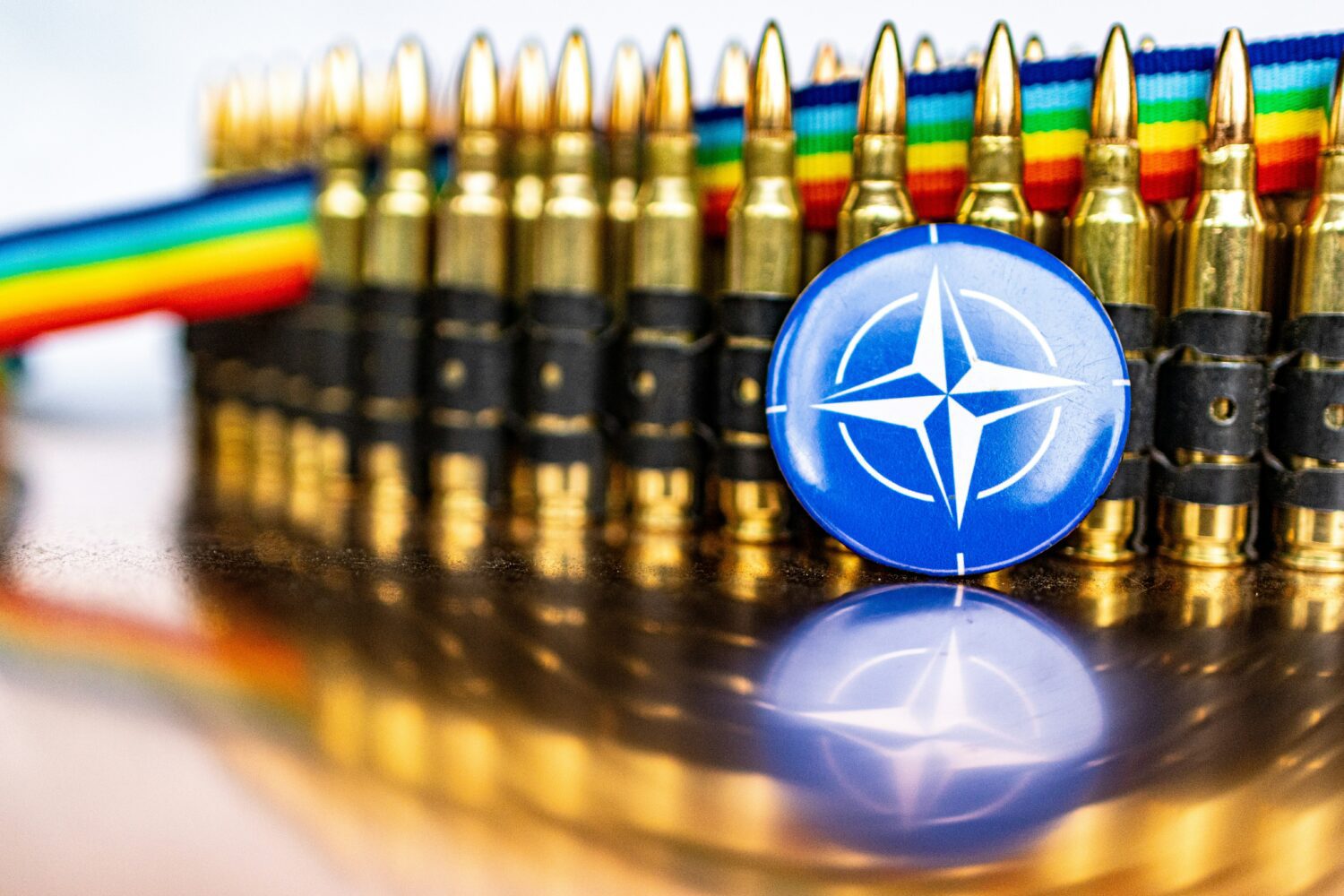Many statements were made during the 2024 presidential debate between Donald Trump and then-Democratic nominee Joe biden. The most troubling, though, was not made with words. When asked about the future of the United States and the North Atlantic Treaty Organization under a new term of his presidency, former President Trump shrugged.
The United States’ International Alliances
The U.S. has been an integral part of military alliances across the globe for decades. In addition to NATO, the United States has a prominent presence in the Australia, New Zealand, and United States Security Treaty. Although it is not a military alliance, the United Nations relies heavily on the vast influence and wealth of the U.S.
NATO has been a keystone of American foreign relations for 75 years. Formed in 1949 to combat the expansion of the Soviet Union and nationalist militarism in Europe, NATO was then an agreement between 12 countries, which has now grown to 32 members. Being a part of the organization, according to Article Five of the original NATO treaty, means “an armed attack against one or more of them … shall be considered an attack against them all.” This stipulation has been effective in deterring attacks as not a single NATO country has been attacked since its formation. However, with Russia gaining more confidence as its siege of Ukraine continues, one can not help but wonder what might happen if the strongest military in the group slowly starts to retreat from or undermine the organization. If another “America first” Trump presidency is inaugurated in 2025, the security of every single NATO country may be threatened.
In addition to NATO, the U.S. has engaged in a military alliance with Australia and New Zealand since 1951. Although developments with New Zealand came to a halt in the mid-1980s due to tensions concerning nuclear weapons, The Australia, New Zealand and United States Security Treaty is still a strong alliance between the U.S. and Australia.
The United Nations is one of the most important international organizations the U.S. is a part of. With headquarters in New York City and the U.S. providing over $18 billion in the 2022 fiscal year, the United States is undoubtedly one of the most influential members of the organization. However, during Trump’s first term, his administration planted doubt in its effectiveness and withdrew from important committees. The United States joined North Korea, Iran, and Eritrea as the only countries that refused to participate in the discussions of the United Nations Human Rights Council. This decision was largely denounced by human rights advocates and grouped the United States with dictatorships and theocracies.
Trump’s Attitude Toward Foreign Affairs
Throughout his presidency and candidacy, Trump has repeatedly made comments that undermine the importance and impact of these organizations. When discussing NATO at a campaign rally in February, Trump encouraged Russia to attack the NATO countries that do not meet the agreed-upon defense spending target. During his presidency, President Trump tweeted in April of 2017 that the share the U.S. contributes to the UN in comparison to other countries is “unfair.”
Finally, although Trump has been somewhat less disparaging toward him, the Prime Minister of Australia, Anthony Albanese, has expressed concern over the future of Australia’s political ties to the United States under another Trump presidency. Following the Jan. 6 insurrection, Prime Minister Anthony Albanese was quoted saying “Under President Trump, we saw the first steps in a retreat by the US from its historical role as the leader of the post-war international order; an order whose underlying values are those which Australians hold dear.”
Despite some controversial actions enacted by NATO, the UN, and other international bodies, their positive impact on Western and democratic nations is undeniable. With the wealth and influence of the United States, democratic countries, both in and out of NATO can rely on financial and military support. For example, although they are not a NATO country, Ukraine has been promised $43 billion in military aid from leaders of nations in NATO and has already received a great deal of assistance. Another Trump presidency could mean the end of stable support from the U.S. and a significantly smaller pledge for countries in need.
Concern Among Major Players in International Relations
During the first presidential debate when the question of continued involvement in NATO went unanswered, concern grew among those involved in foreign affairs. Jana Puglierin, director of the German office of the European Council on Foreign Relations, was quoted saying “I was very worried prior to this debate and I’m even more worried now.”
Trump’s comments alone do not mean the end of U.S. military alliances and international cooperation. However, most advisors who were a part of the first Trump administration have abandoned or have been alienated by their former boss. Another four years in the White House would entail almost an entirely new cabinet and advisors, likely more isolationist than the last. The “Make America Great Again” platform is steadfast in its view that Americans and the U.S. economy should be the absolute priority. In the MAGA party’s opinion, there is little money in the budget to support countries threatened by undemocratic forces.
The Democratic Party with its new nominee, on the other hand, has been unwavering in its support for military alliances and international organizations. There is no question which president will allow major players in the world of foreign affairs to breathe a sigh of relief.



